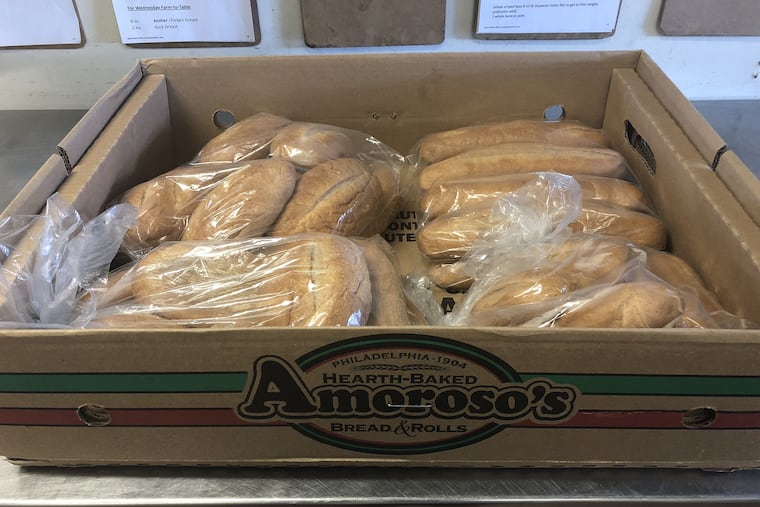City teams up with Drexel, Amoroso’s to create low-sodium hoagie roll that actually tastes good
When the roll was served with deli meat or meat balls and sauce, the taste testers didn't even miss the salty taste of the bread.

Sometimes, you just need to mess with perfection.
Scientists at Drexel University’s Food Lab teamed up with the Philadelphia Department of Public Health and Amoroso’s Baking Co. to create a low-sodium hoagie roll.
“They taste good,” said Jonathan Deutsch, founder of the Food Lab and professor of culinary arts and food science at Drexel’s Center for Food and Hospitality Management.
A Philadelphia culinaryclassic, the six-inch hoagie roll regularly packs about 300 to 400 milligrams of sodium. Add some deli meat, cheese, and sweet pickled peppers, and you have a potential case of high blood pressure in the making.
American adults on average eat more than 3,400 mg of sodium daily, according to the American Heart Association. But the group recommends no more than 2,300 mg of sodium daily in a healthy diet, with the ideal closer to 1,500 mg for most adults.
Three years ago, the health department received a five-year, nearly $2 million grant from the Centers for Disease Control and Prevention to partake in the Sodium Reduction in Communities Program. One project was to work with Asian buffet restaurants that served lower-income youths, seniors, and adults to serve healthier meals.
The department also looked to purchase foods for city agencies that were lower in sodium, but had trouble finding certain items in the marketplace, said Catherine Bartoli, a nutrition and food service coordinator with the department.
“What became more challenging were rolls, bagels, and muffins,” she said.
So the department turned to Drexel.
Pulling sodium out of a hoagie roll is not as easy as just using less salt in the recipe, said Deutsch.
Salt is needed to regulate the growth of yeast, and gives strength to the bread. A perfect balance needed to be found, especially when producing mass quantities, where small imperfections can be magnified, he said.
Food Lab manager Alexandra Zeitz and Benjamin Fulton, a graduate student in food science, set about experimenting on a hoagie roll recipe, varying the salt levels until they felt they had it right.
Then it came time for the taste tests.
When the testers were asked to compare the reduced-sodium rolls and the regular rolls, everyone was quickly able to tell the difference. Most bread is fairly salty, said Deutsch.
But, Deutsch recalled, "there were people who preferred the lower-salt version.”
When deli turkey or meatballs and sauce were added, the taste differential was diminished, and the testers didn’t seem to care as much about the taste of the bread, he said.
Next, the group decided to look for a bread manufacturer.
Amoroso’s turned out to be the perfect partner, Deutsch said.
“We were a little curious to know what the project would entail,” said Jesse Amoroso, vice president of the company.
The product needed to address the health initiative but also had to meet the standards of the company, he said.
“We wanted to make sure kids liked it,” said Amoroso.
The end result was a whole wheat version that used only 210 mg of sodium, which was about 70 mg less than the city’s nutritional standard limit.
In April, the School District rolled out the roll to its students.
The district buys about 1.68 million rolls a year. With the new product, the district, which regulates the amount of sodium in meals, estimated it was able to cut 1,294 pounds of salt from school lunches annually.
Food service managers at Philadelphia schools said they didn’t receive any negative feedback after the switch. Some were not even aware the bread formula had changed, Deutsch said.
Amoroso’s sells the product to other school districts in the area, including Upper Darby, Bethlehem, Camden County, and Red Clay and Colonial in Delaware, said Amoroso.
The reduced sodium hoagie roll is only available in schools, said Amoroso. But he is not ruling out future ventures with other vendors.
“We believe this should be offered to as many people as would like it,” he said.